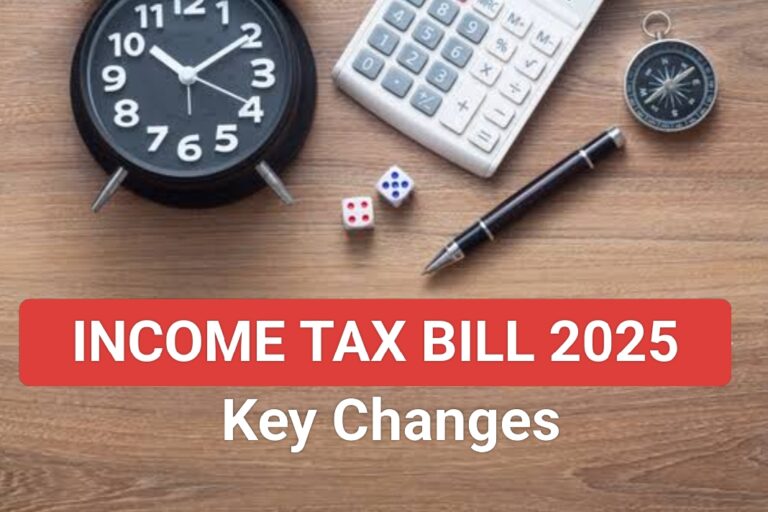The Income Tax Bill, 2025 has undergone several crucial amendments after review by the Select Committee, making the legislation more aligned with current business practices, taxpayer convenience, and judicial clarity. This article provides a comparative analysis of the original provisions and the revised clauses, highlighting the Select Committee’s key improvements.
Clause 148 – Deduction on Inter-Corporate Dividends
Original Provision:
The initial draft permitted deductions for dividends received by a domestic company from another domestic company or business trust, but only up to the amount it redistributed. This created uncertainty for companies under Section 115BAA (concessional tax regime).
Amended Provision:
The revised clause now explicitly allows full deduction of inter-corporate dividends even for companies under Section 115BAA. It reintroduces the essence of erstwhile Section 80M, ensuring tax neutrality on distributed dividends.
Clause 395 – NIL TDS Certificates for Eligible Entities
Original Provision:
Only certificates for reduced TDS rates were allowed. The absence of NIL deduction certificates caused issues for tax-exempt institutions and loss-making entities.
Amended Provision:
Now, Assessing Officers can issue NIL or lower deduction certificates. This restores parity with Section 197 of the current Act and helps preserve cash flow for qualifying taxpayers.
Clause 433 – Refunds Allowed on Belated Returns
Original Provision:
Refunds were disallowed if the return wasn’t filed within the original due date, creating hardship for taxpayers who filed belated but legitimate returns.
Amended Provision:
The clause now allows refunds for returns filed under Section 267, eliminating the penal consequence of delayed filing where genuine excess tax was paid.
Clause 243 – Mandatory Faceless Reassessment Process
Original Provision:
No specific provision mandated the use of the faceless scheme for reassessment, leaving room for discretionary practices.
Amended Provision:
The Select Committee has mandated faceless reassessment procedures, including centralized notices and approvals. It enhances transparency, uniformity, and compliance with Supreme Court rulings.
Clause 210 – Charitable Trusts and Commercial Receipts
Original Provision:
Charitable institutions enjoyed tax exemption even with substantial commercial receipts, with limited regulatory oversight.
Amended Provision:
Now, such entities must ensure that commercial receipts do not exceed 20% of total income. Additionally, filing of audited financials in prescribed format becomes mandatory.
Clauses 337-342 – Modernization of Appeals & Dispute Resolution
Original Provision:
Appeal mechanisms lacked tech integration and clear timelines, resulting in prolonged litigation.
Amended Provision:
Reforms include AI-based triaging, faceless appeal extensions, and structured appellate timelines. Fast-track resolution is now available for low-value cases, enhancing efficiency.
Clause 5 – Expanded Definition of ‘Person’
Original Provision:
Ambiguity existed regarding inclusion of LLPs, foreign trusts, and artificial juridical persons.
Amended Provision:
The definition of ‘person’ now clearly includes stateless persons, foreign entities, trusts, and LLPs, bringing a wider range of entities into the tax framework and minimizing disputes over tax applicability.
Clauses 297–305 – Rationalized TDS/TCS Thresholds
Original Provision:
Low deduction thresholds (e.g., ₹10,000 on commissions) increased compliance burdens for small businesses.
Amended Provision:
Thresholds raised to ₹50,000 for certain payments like brokerage and commissions. Startups and MSMEs receive conditional exemptions with declaration filing.
Clause 81 – Clearer Capital Gains Rules for Hybrid Instruments
Original Provision:
Capital gains computation lacked clarity on hybrid financial instruments like ULIPs, MLDs, and equity-oriented mutual funds.
Amended Provision:
New rules clarify tax treatment by denying indexation for high-premium ULIPs and MLDs, and specifying business vs. capital asset classification based on holding nature.
Clause 243 (Set-Off Rules) – Extended Loss Carry Forward for Startups
Original Provision:
Loss carry-forward for eligible startups was limited to 7 years, curbing long-term growth incentives.
Amended Provision:
Extension increased to 10 years, in line with DPIIT’s startup definition. Set-off eligibility now depends on timely return filing and shareholding continuity.
Conclusion
The Select Committee’s amendments to the Income Tax Bill, 2025 reflect a shift toward clarity, technology-driven governance, and pro-taxpayer measures. Key changes such as allowing NIL TDS certificates, enabling refunds on belated returns, and expanding the definition of ‘person’ aim to create a more equitable and modernized tax framework in India. These updates also align with global best practices and judicial mandates, setting the stage for a more efficient, inclusive, and predictable income tax regime.
